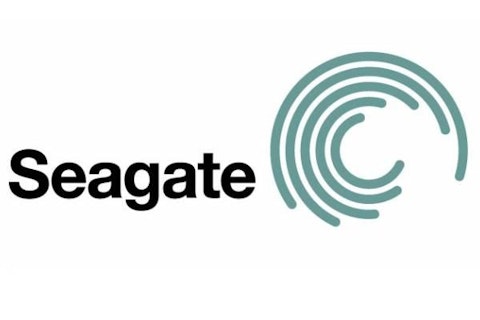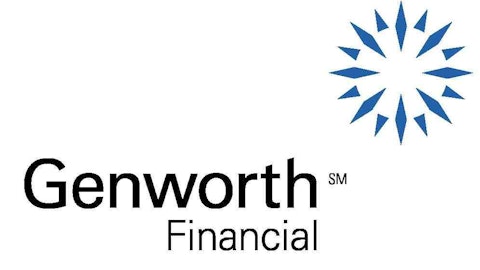Value investors often seek out profitable companies trading at bargain valuations. The investment strategy is a sound one — some of the greatest investors in the world, including Warren Buffett, employ it.
But sometimes, profitable companies trade at bargain valuations for a reason. Often they are in broken businesses, and their long-term decline seems inevitable.
Seagate Technology PLC (NASDAQ:STX) and Western Digital Corp. (NASDAQ:WDC) are two such companies. Although they trade with far-below market multiples, and generate a great amount of cash, their businesses are based on an industry — hard drives — that is fundamentally challenged.
Hard drive makers face two problems
When it comes to the hard drive technology itself, the industry faces two primary challenges.

The second issue is the rise of solid state drives. SSDs offer far better performance than traditional hard drives, and though they remain much more expensive, they have become increasingly affordable in just the last few years. Most high-end PCs now ship with SSDs rather than HDDs.
The rise of mobile
Whether one prefers to characterize it as the death of the PC, or its shift in form factor, there’s no denying that mobile devices are increasingly serving the computing needs of a large group of people. In the first quarter, PC shipments fell by nearly 14% — the worst drop on record.
Meanwhile, the market for tablets continues to grow. In the first quarter, tablet shipments doubled from the prior year, and by the fourth quarter of this year, tablets are expected to outsell notebook computers. By 2015, tablets are expected to outsell all traditional PCs.
At the same time, companies like Microsoft Corporation (NASDAQ:MSFT) are banking on the emergence of an entirely new class of PC — hybrids. These devices, such as Microsoft’s Surface Pro, are fully capable PCs in the shape of a tablet.
The important thing, though, is that none of these devices use hard drives.
Is there a solution in the cloud?
But wait a minute. Mobile devices go hand in hand with the cloud. A given tablet might not have a hard drive, but it’s likely tied to a cloud-based storage solution like iCloud, Dropbox, or Google Inc (NASDAQ:GOOG) Drive. And those distant cloud servers are using hard drives. So the industry is fine, right?
Not really. Last quarter, cloud-related demand accounted for only 20% of Seagate Technology PLC (NASDAQ:STX)’s revenue. As for Western Digital Corp. (NASDAQ:WDC), enterprise demand accounted for only 8% of unit sales in fiscal year 2012.
iHS said in February that it expects total hard drive industry revenue to decline nearly 12% in 2013, and remain flat in the following year.
At the same time, cloud storage is far more efficient than local storage, meaning the total amount of storage required is far less. The shift in the digital music industry illustrates this quite well.
Five years ago, streaming music services were practically unheard of. Most people kept their digital music stored on their PC’s hard drive, or on their hard drive-equipped mp3.
Nowadays, that’s increasingly untrue. The rise of services like Spotify and Pandora Media Inc (NYSE:P) means that more and more, people are getting their music streamed to them. A song stored on a Spotify server accessed by millions of subscribers requires less total space than the same song stored independently on all those subscribers’ hard drives.
Sales of the hard drive-equipped, high storage capacity iPod have been falling for years. Apple’s own management has admitted that the iPhone and (to a lesser extent) iPod Touch have been cannibalizing the classic iPod. Although Apple doesn’t offer an exact breakdown of the popularity of the iPhone’s different storage options, even the largest capacity iPhone is still smaller than the sixth generation iPod, released six years ago.
And it’s not just music — the same trend is playing out across other forms of media — video games, movies, books, etc.
SSDs going mainstream
Then there’s the issue of solid state. It’s nearly impossible to find a $500 budget PC with a SSD, but Samsung’s Ultrabooks use them exclusively. In fact, Samsung has made its solid state drives a focal point of its advertising campaign — those commercials emphasizing the devices’ impressive boot-up times are essentially advertisements for the power of solid state.
Samsung used to be a major player in the hard drive industry, but sold its hard drive unit to Seagate Technology PLC (NASDAQ:STX) in 2011. Given Samsung’s propensity to make vertically-integrated devices, the decision to sell suggests that Samsung doesn’t have much faith in the hard drive’s future.
A frequent refrain among hard drive bulls is to note that SSDs remain much more expensive than traditional HDDs, and likely will for quite some time, if not forever.
While this is true, it doesn’t really matter. SSDs offer far superior performance, and though they may always be more expensive, they will eventually become cheap enough to warrant their higher price tags.
Both Seagate Technology PLC (NASDAQ:STX) and Western Digital Corp. (NASDAQ:WDC) have expanded into the solid state market. Western Digital in particular seems focused on the space — on the company’s last earnings call, CEO Stephen Milligan was adamant that the company remains “very interested” in the SSD area.
But the problem here is that unlike HDDs, Western Digital Corp. (NASDAQ:WDC) and Seagate Technology PLC (NASDAQ:STX) are far from dominant players in the SSD market. In fact, they’re barely players at all.
Here, Samsung absolutely dominates, accounting for nearly a quarter of the industry’s revenue in 2012.
Unfortunately, Samsung is too complex of a company to use its SSD business as reason enough to buy the stock — yet, if one is bullish on solid state, they’d be better served owning Samsung than one of the hard drive makers.
There’s also growing demand for solid state from the enterprise market. Admittedly, Gartner doesn’t expect hard drives to disappear from data centers for at least another decade, but IBM has invested $1 billion to accelerate solid state adoption.
Seagate, Western Digital’s exposure to the HDD market
Ultimately, both Seagate Technology PLC (NASDAQ:STX) and Western Digital Corp. (NASDAQ:WDC) remain primarily hard drive companies, with large exposure to the traditional PC market. In calendar year 2011, 73% of Western Digital’s products were used for desktop or laptop computers. Likewise, almost 90% of the hard drives Seagate shipped last quarter were to non cloud-based customers.
Although the shift to the cloud will create some offsetting demand, it might not be enough to make up for the decline of traditional PCs — still the primary market for Western Digital Corp. (NASDAQ:WDC) and Seagate Technology PLC (NASDAQ:STX).
HDDs are on their way out
PC components come and go. One would be hard pressed to find a working PC with a floppy drive, for example, while optical (CD) drives are absent from many modern laptops (and even some cars).
Hard drives appear poised to follow, much to the chagrin of Seagate Technology PLC (NASDAQ:STX) and Western Digital Corp. (NASDAQ:WDC) shareholders.
Sam Mattera is short shares of Seagate Technology (NASDAQ:STX). The Motley Fool owns shares of Western Digital..
The article Seagate & Western Digital: The Ultimate Value Traps originally appeared on Fool.com.
Copyright © 1995 – 2013 The Motley Fool, LLC. All rights reserved. The Motley Fool has a disclosure policy.





